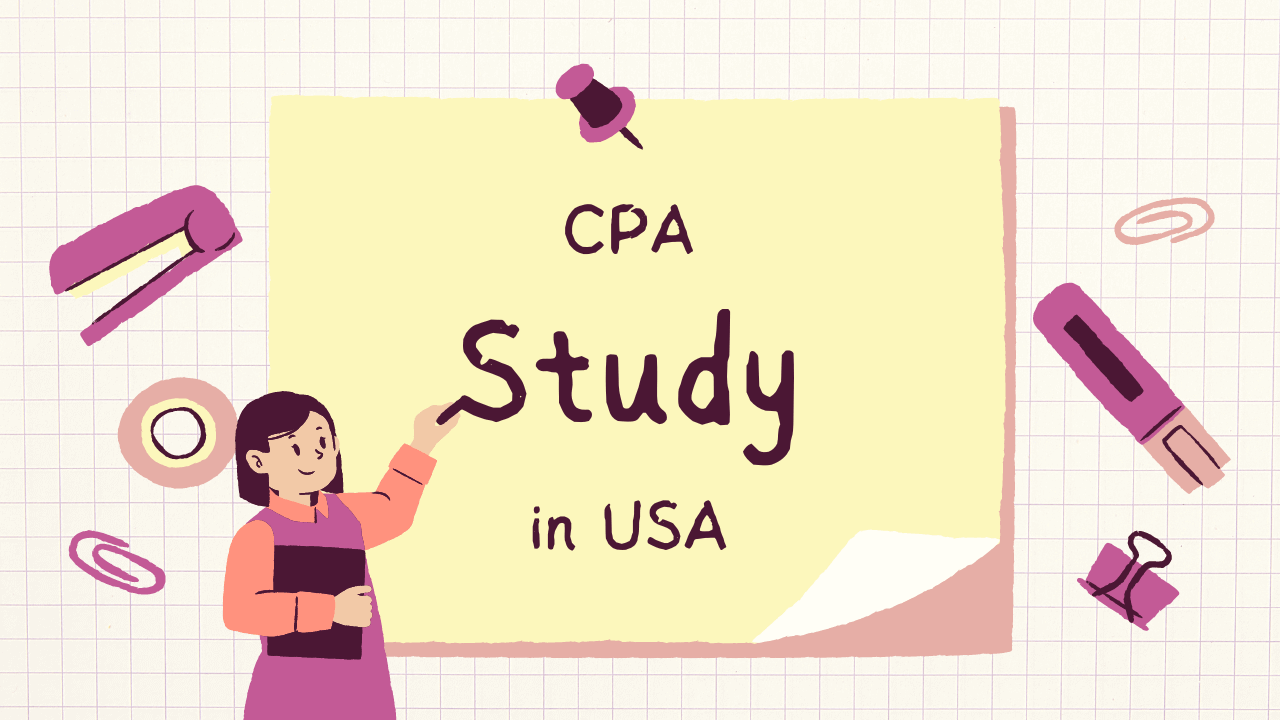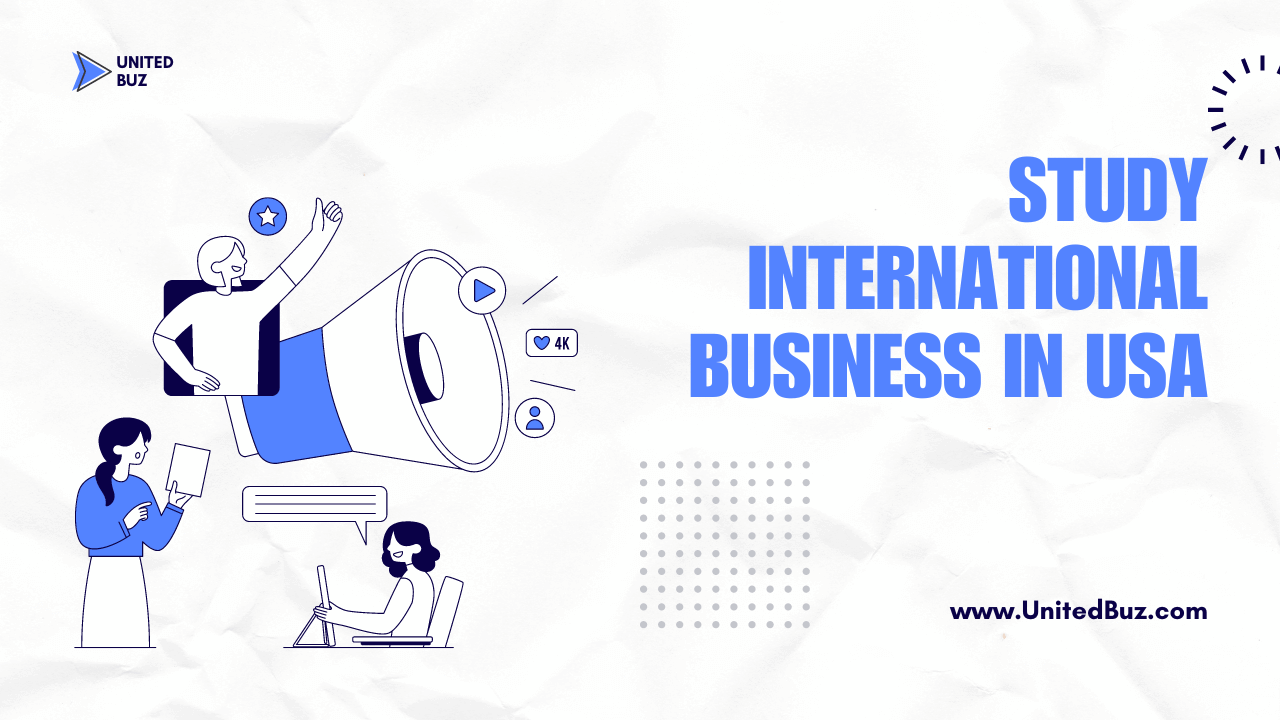CPA Study in USA: Pathway to Professional Excellence

Introduction to CPA Certification
Becoming a Certified Public Accountant (CPA) in the United States is a prestigious achievement that opens doors to lucrative career opportunities in accounting, finance, and business advisory. This comprehensive guide explores the requirements, benefits, exam preparation strategies, and career prospects associated with CPA study in the USA.
What is a CPA?
A Certified Public Accountant (CPA) is a licensed accounting professional who has met specific education, examination, and experience requirements set by the state boards of accountancy. CPAs are trusted advisors skilled in financial reporting, taxation, auditing, and compliance, essential for ensuring the integrity of financial systems and organizational governance.
Why Pursue CPA Certification?
Professional Credibility and Recognition
CPA certification enhances professional credibility and demonstrates expertise in accounting principles, ethics, and regulatory compliance. Employers, clients, and stakeholders value CPAs for their rigorous training, commitment to ethical standards, and ability to provide reliable financial insights.
Career Advancement Opportunities
CPAs enjoy diverse career pathways across industries, including public accounting firms, corporations, government agencies, nonprofit organizations, and consulting firms. With increasing globalization and regulatory complexity, the demand for CPAs continues to grow, offering competitive salaries and opportunities for professional growth.
Specialized Knowledge and Skills
CPA education and training encompass advanced coursework in accounting, finance, taxation, and business law. CPAs possess analytical skills, critical thinking abilities, and proficiency in accounting software essential for strategic decision-making and financial management.
Regulatory Requirements and Licensing
To become a CPA in the USA, candidates must fulfill specific requirements established by the state boards of accountancy. These typically include:
- Education: Completion of a bachelor’s degree or higher with a major in accounting or related field from an accredited institution.
- CPA Exam: Passing the Uniform CPA Examination, a rigorous four-part exam administered by the American Institute of Certified Public Accountants (AICPA).
- Experience: Accumulation of professional experience in accounting or related fields under the supervision of a licensed CPA.
- Ethics Examination: Completion of an ethics examination to demonstrate understanding of ethical standards and professional responsibilities.
CPA Exam Structure and Preparation
Overview of the CPA Exam
The Uniform CPA Examination consists of four sections:
- Auditing and Attestation (AUD): Focuses on auditing procedures, attestation engagements, and the preparation, compilation, and review of financial statements.
- Business Environment and Concepts (BEC): Covers business structure, economics, financial management, information technology, and operations management.
- Financial Accounting and Reporting (FAR): Includes financial accounting principles, financial statement preparation, and accounting transactions for business enterprises, governmental entities, and nonprofit organizations.
- Regulation (REG): Examines federal taxation, ethics, professional and legal responsibilities, and business law.
Exam Preparation Strategies
1. Develop a Study Plan
Create a comprehensive study plan outlining study hours, exam dates, and targeted review sessions for each CPA exam section. Allocate sufficient time for practice exams, simulations, and revision.
2. Utilize CPA Review Courses
Enroll in CPA review courses offered by reputable providers such as Becker, Wiley CPAexcel, Roger CPA Review, or Kaplan CPA Review. These courses provide structured study materials, practice questions, and interactive lectures to reinforce key concepts.
3. Practice Exam Simulations
Take practice exams and simulations to familiarize yourself with the exam format, time constraints, and question types. Analyze performance metrics to identify areas of strength and weakness for targeted review.
Related Article: Study International Business in USA Navigating Global Markets.
4. Collaborate with Peers and Mentors
Join study groups or online forums to collaborate with peers, share study strategies, and discuss challenging topics. Seek guidance from mentors or licensed CPAs who can provide insights into exam preparation and career development.
5. Maintain Work-Life Balance
Balance study commitments with personal and professional responsibilities to avoid burnout and maintain focus during exam preparation. Prioritize self-care, adequate sleep, and healthy habits to optimize cognitive performance.
Benefits of Studying CPA in the USA
Prestigious Education Institutions
The USA is home to renowned universities and colleges offering accredited accounting programs recognized for academic excellence and industry relevance. Students benefit from access to distinguished faculty, state-of-the-art facilities, and networking opportunities with accounting professionals.
Global Career Opportunities
CPA certification is highly regarded internationally, enabling CPAs to pursue global career opportunities in multinational corporations, global advisory firms, and international financial institutions. The diverse skills and knowledge acquired through CPA education prepare professionals to navigate complex global business environments.
Professional Development and Networking
CPA education fosters professional development through networking events, career workshops, and industry conferences. Students interact with accounting professionals, recruiters, and alumni to expand their professional network and explore career pathways in accounting and finance.
Career Stability and Job Security
CPAs enjoy career stability and job security due to their specialized expertise in financial management, regulatory compliance, and risk assessment. Organizations value CPAs for their role in ensuring financial transparency, mitigating risks, and driving strategic decision-making.
Career Paths for CPAs
Public Accounting
- Audit and Assurance Services: Conducting financial statement audits, internal controls assessment, and regulatory compliance reviews.
- Tax Advisory and Consulting: Providing tax planning, compliance, and advisory services to individuals, businesses, and nonprofit organizations.
- Forensic Accounting: Investigating financial fraud, conducting forensic audits, and supporting litigation and dispute resolution.
Corporate Accounting and Finance
- Financial Reporting: Preparing financial statements, conducting variance analysis, and ensuring compliance with accounting standards.
- Management Accounting: Analyzing financial data, forecasting budgetary requirements, and supporting strategic decision-making.
- Internal Audit: Evaluating internal controls, identifying operational inefficiencies, and recommending process improvements.
Government and Nonprofit Organizations
- Government Accounting: Managing public funds, budgeting, and financial reporting for federal, state, and local government agencies.
- Nonprofit Accounting: Overseeing financial management, grant compliance, and donor reporting for nonprofit organizations.
Consulting and Advisory Services
- Business Valuation: Assessing the economic worth of businesses, intangible assets, and intellectual property.
- Risk Management: Identifying financial risks, developing risk mitigation strategies, and advising on regulatory compliance.
Tips for Success in CPA Studies
Commit to Continuous Learning
Stay updated on changes in accounting standards, tax regulations, and industry trends through professional development courses, seminars, and industry publications. Maintain an active CPA license by fulfilling continuing professional education (CPE) requirements.
Cultivate Soft Skills
Develop interpersonal skills, communication abilities, and leadership qualities essential for collaborating with clients, managing teams, and presenting financial information effectively. Strengthen your analytical skills and attention to detail to excel in accounting and auditing roles.
Seek Mentorship and Guidance
Build relationships with experienced CPAs, mentors, and industry professionals who can provide career advice, industry insights, and networking opportunities. Actively seek feedback to enhance your professional skills and advance your career in accounting and finance.
Embrace Ethical Standards
Adhere to ethical principles, integrity, and professional conduct standards outlined by the AICPA Code of Professional Conduct. Uphold ethical practices in financial reporting, auditing procedures, and client relationships to maintain trust and credibility as a CPA.
Conclusion
CPA study in the USA offers aspiring accounting professionals a pathway to professional excellence, career advancement, and global recognition. By acquiring specialized knowledge, mastering core competencies, and obtaining CPA certification, individuals can pursue rewarding careers in public accounting, corporate finance, government agencies, and consulting firms. Embrace the challenge of CPA exam preparation, leverage educational resources, and capitalize on networking opportunities to achieve your professional goals in the dynamic field of accounting and finance.





